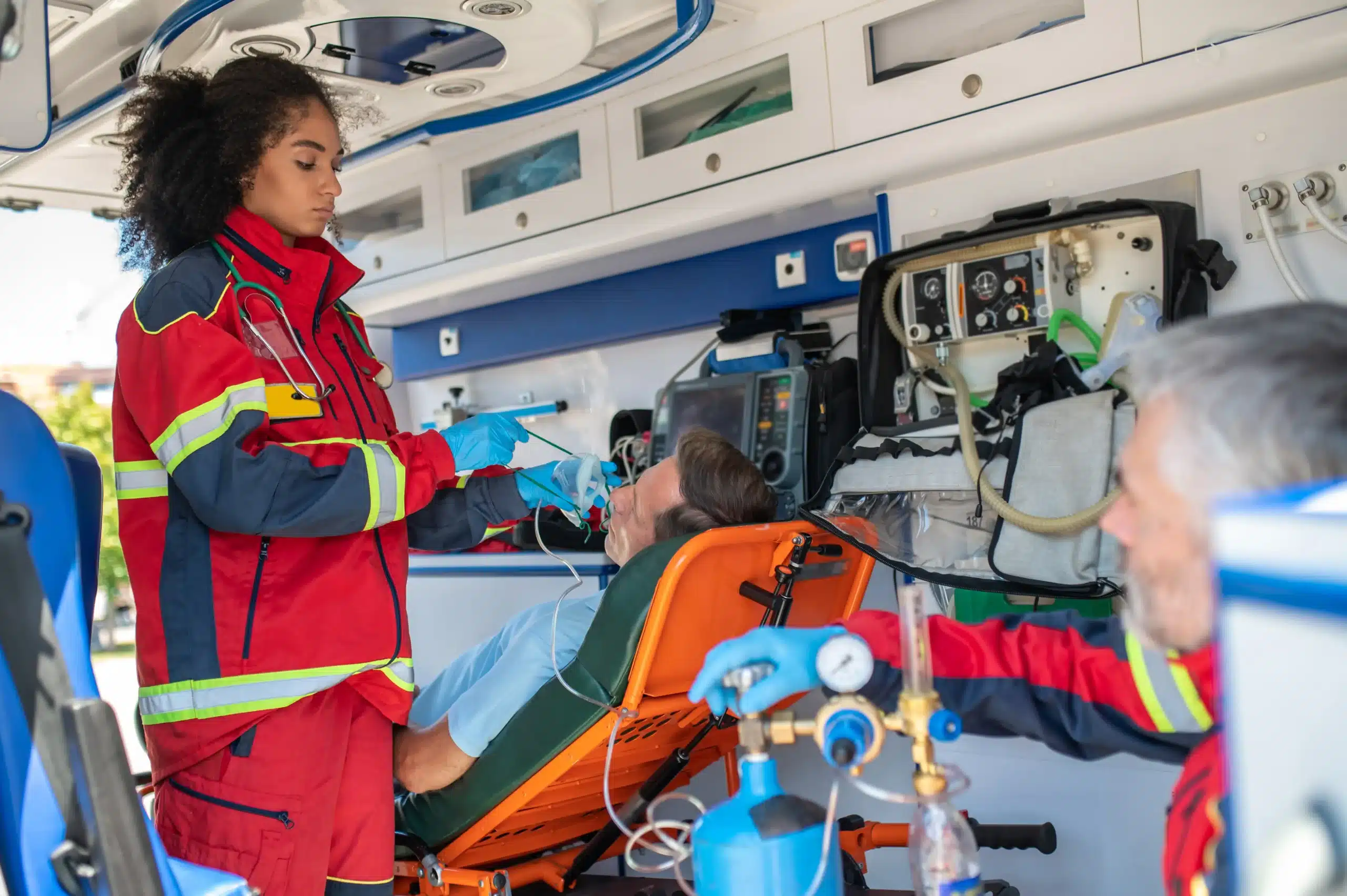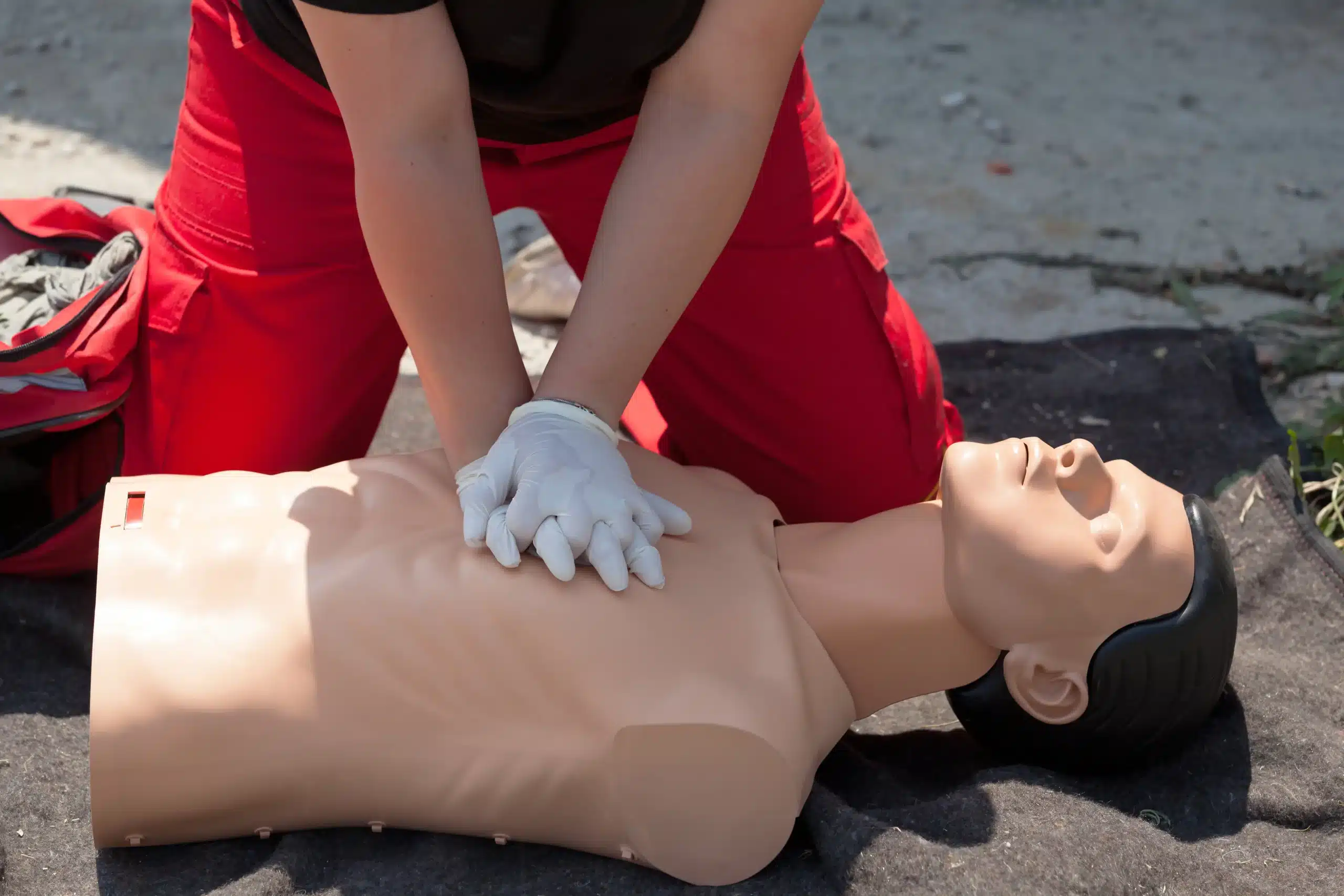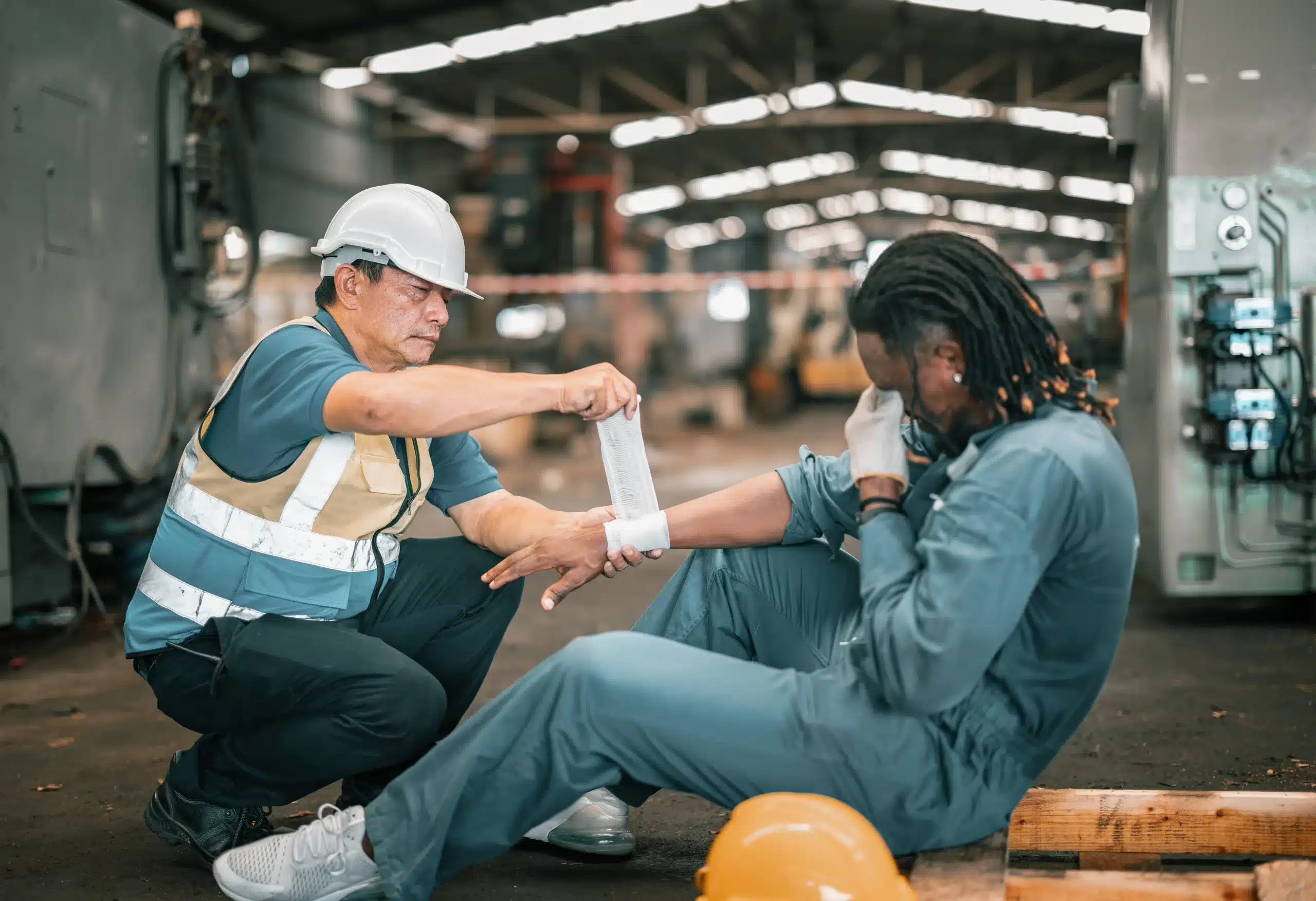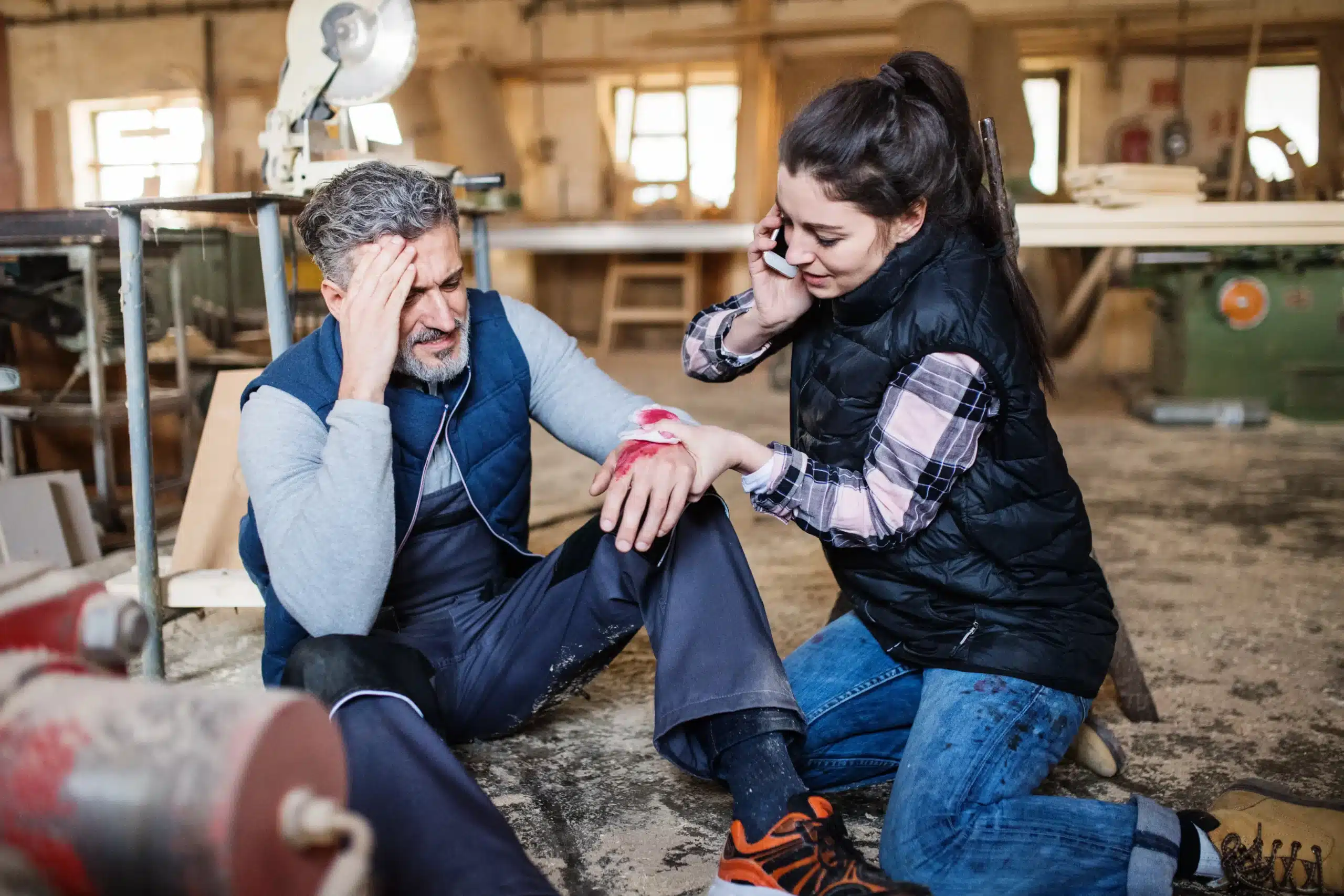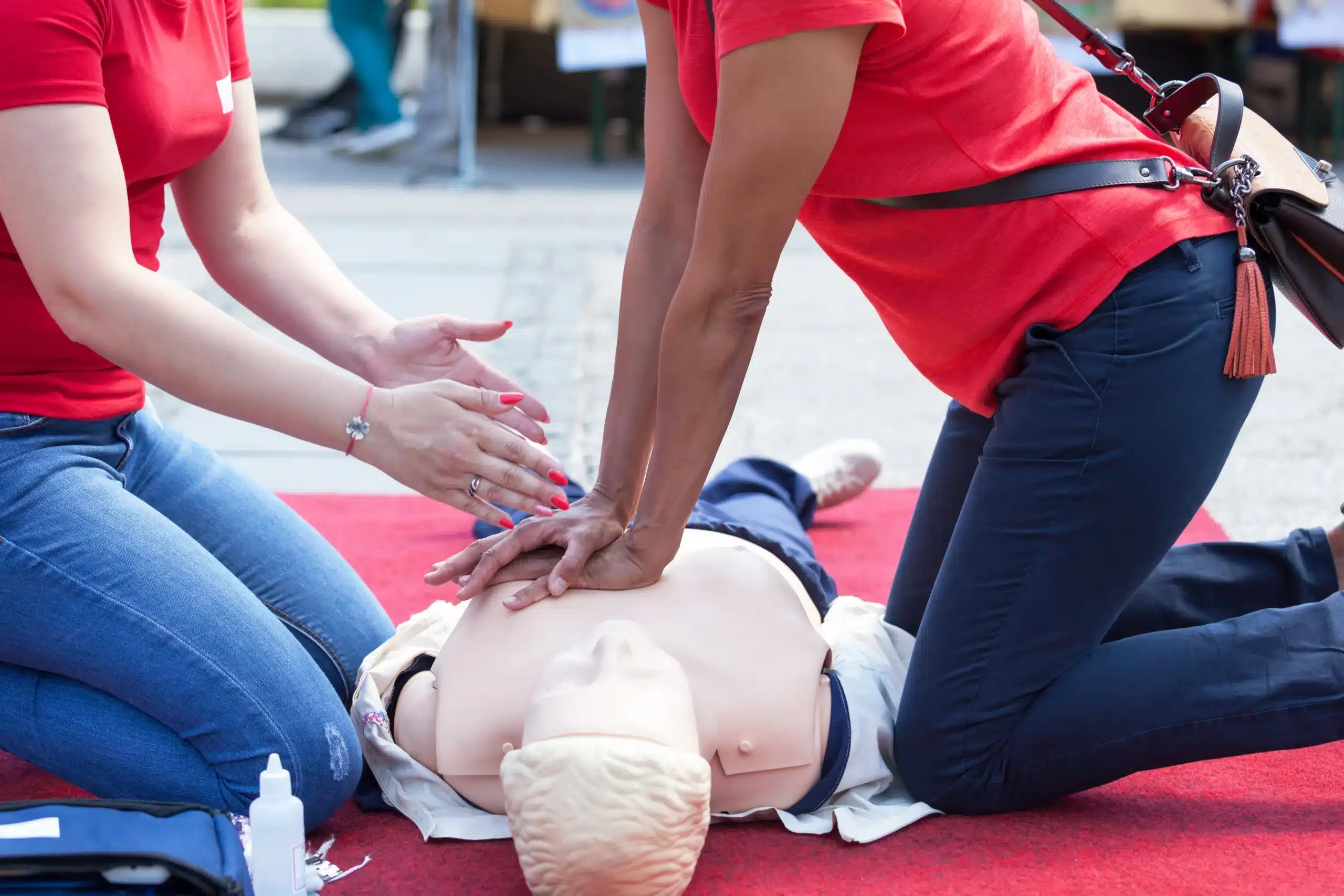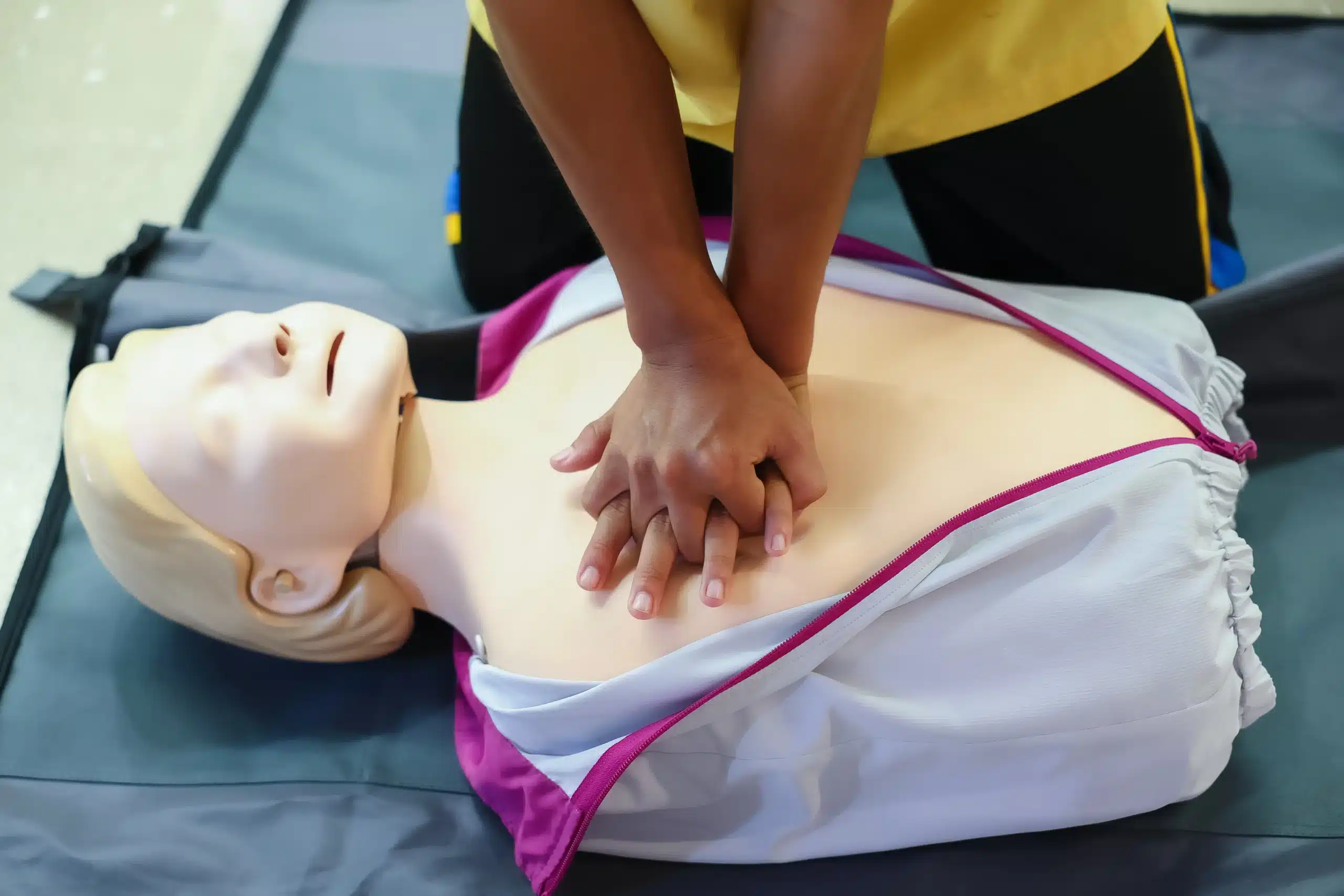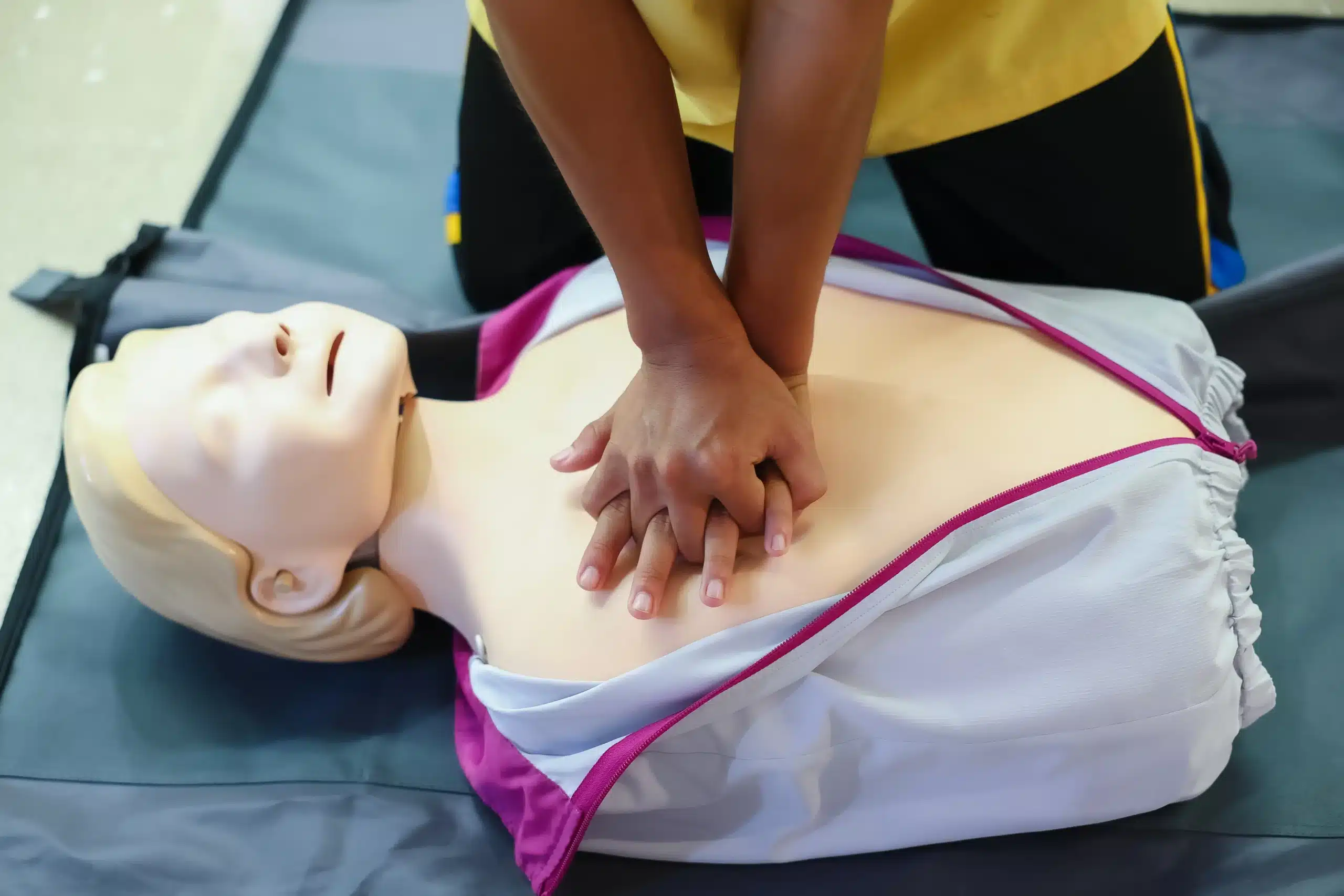Emergencies can happen anytime, anywhere. Would you know what to do? CPR training in Sunnyvale equips you with the skills to respond confidently in such critical situations. This guide explores the various CPR training options available in Sunnyvale, catering to healthcare professionals, workplace requirements, and personal preparedness. We’ll delve into the specifics of different courses, including BLS, ACLS, PALS, and Heartsaver CPR/AED, offered by providers like Safety Training Seminars. We’ll also discuss the certification process, renewal procedures, and address common misconceptions about CPR training. Finally, we’ll highlight the importance of quality CPR training and the growing CPR awareness within the Sunnyvale community.
Key Takeaways
- Find the right CPR training for you: Sunnyvale offers various CPR and first aid courses, including online and in-person options, catering to diverse needs and schedules.
- High-quality training builds confidence: Learn essential, potentially life-saving skills through hands-on practice with feedback devices and instruction aligned with the latest AHA guidelines.
- Affordable CPR training is within reach: Take advantage of resources like group discounts and low price guarantees to make quality training accessible and become a prepared community member.
What is CPR Training in Sunnyvale?
CPR training in Sunnyvale gives you the skills to handle medical emergencies. These courses, often certified by the American Heart Association, teach essential CPR techniques and often include first aid. Whether you’re a healthcare professional, teacher, coach, parent, or just someone wanting to learn these lifesaving skills, Sunnyvale has various CPR courses to suit you. Safety Training Seminars is a key provider in the area, offering courses like BLS, ACLS, and PALS. Many programs now combine online learning with in-person skills sessions for a more flexible learning experience. After completing your training, you’ll receive nationally recognized CPR certification, giving you the confidence to act in emergencies.
CPR Course Options in Sunnyvale
Finding the right CPR course can feel overwhelming, but Sunnyvale offers a variety of options to suit different needs. Whether you’re a healthcare professional, need certification for work, or simply want to be prepared for emergencies, there’s a course for you.
AHA Heartsaver® CPR/AED Courses
These courses are designed for anyone who wants to learn CPR and how to use an automated external defibrillator (AED). The Santa Clara County Fire Department offers several convenient options, including a blended learning course that combines online instruction with in-person skills practice. They also offer a traditional four-hour in-person course. This flexibility allows you to choose the format that best fits your schedule and learning style. You can explore these options on the Santa Clara County Fire Department website.
BLS for Healthcare Providers
Healthcare providers, such as doctors, nurses, and paramedics, require specialized CPR training. The Basic Life Support (BLS) course covers advanced techniques and protocols specific to the healthcare setting. Safety Training Seminars offers AHA-certified BLS courses in Sunnyvale, conveniently located near Palo Alto and Santa Clara. This course is essential for maintaining certification and enhancing your lifesaving skills. You can find their upcoming BLS courses in San Jose (Willow Glen), a nearby location.
ACLS and PALS Certification
For healthcare professionals who respond to cardiovascular emergencies and treat pediatric patients, Advanced Cardiovascular Life Support (ACLS) and Pediatric Advanced Life Support (PALS) certification are crucial. Safety Training Seminars provides these advanced courses in Sunnyvale, ensuring you receive high-quality training aligned with the latest AHA guidelines.
First Aid and Hands-Only CPR
Even without formal CPR certification, learning basic lifesaving techniques can make a difference. The Santa Clara County Fire Department offers a Hands-Only CPR/AED and Choking Relief class, which focuses on effective chest compressions and AED use. This shorter course is a great option for those who want to learn essential skills quickly. It’s also a valuable addition to traditional CPR training.
Where to Get CPR Certified in Sunnyvale
Finding the right CPR certification course in Sunnyvale depends on your specific needs and preferences. Here’s a breakdown of some reputable training providers in the area:
Safety Training Seminars
Safety Training Seminars offers a comprehensive range of American Heart Association (AHA) certified courses, including CPR, Basic Life Support (BLS), Advanced Cardiovascular Life Support (ACLS), and Pediatric Advanced Life Support (PALS). They prioritize high-quality training and offer classes daily to accommodate busy schedules. Learn more about their BLS certification and register for upcoming BLS courses. Safety Training Seminars is committed to providing affordable training and even offers a low price guarantee.
AHA Authorized Training Centers
Looking for an AHA Training Center specifically? Safety Training Seminars, a woman-owned business, offers AHA-certified courses including BLS, ACLS, PALS, CPR, and First Aid certification right here in Sunnyvale. With classes offered daily, they make it easy to fit training into your schedule. They also provide specialized training like the RQI program for healthcare professionals. Additionally, they offer essential health and safety training, including lead poisoning prevention, for childcare providers in California.
Santa Clara County Fire Department
The Santa Clara County Fire Department (SCCFD) provides several CPR/AED training options for the community, including blended learning and traditional in-person formats. They also offer a Hands-Only CPR/AED and Choking Relief class. Learn more about their CPR and AED training programs.
Red Cross Sunnyvale Chapter
The Red Cross is a well-known provider of CPR and first aid training. Their Sunnyvale chapter offers a variety of courses for individuals and organizations. Find Red Cross courses near you.
Your CPR Training Experience
Choosing the right CPR class can feel overwhelming, but it doesn’t have to be. Understanding what to expect during your training can help you feel prepared and confident. At Safety Training Seminars, we prioritize a positive and supportive learning environment.
Course Length and Format
We offer a variety of American Heart Association (AHA) certified courses, including CPR, Basic Life Support (BLS), Advanced Cardiovascular Life Support (ACLS), and Pediatric Advanced Life Support (PALS). This range ensures you can find a course that aligns with your specific needs and schedule. Our BLS course is a popular choice for healthcare providers, and you can view our upcoming BLS classes in San Jose (Willow Glen).
Practice with Feedback Devices
Hands-on practice is essential for mastering CPR. We use advanced mannequins with feedback devices during our training sessions. These devices provide real-time feedback on the quality of your compressions and ventilations, helping you refine your technique and build confidence. This immediate feedback leads to better skill development and retention.
Blended Learning Options
For those seeking flexibility, we offer blended learning courses. These combine online instruction with shorter, in-person skills sessions. You can complete the self-paced online portion, then attend a hands-on session to practice your skills and receive instructor feedback. This format is especially convenient for busy professionals. Our RQI program for healthcare professionals uses this blended learning model. We also offer an EMSA Health, Safety, and Lead Poisoning course for California childcare providers.
CPR Training Costs & Value
Getting CPR certified is an investment in yourself and your community. Understanding associated training costs and recognizing its immense value helps you make informed decisions. Let’s break down the factors influencing CPR training expenses and why it’s worth it.
Course Prices
CPR course prices vary based on the certification you need. Basic CPR and AED training is generally the most affordable, while advanced certifications like ACLS or PALS for healthcare providers usually cost more. Safety Training Seminars offers competitive pricing on all courses, making these lifesaving skills accessible. Find course-specific pricing on our website.
Group Discounts and Deals
Training a group? Ask about group discounts. Many training centers, including Safety Training Seminars, offer reduced rates for group bookings. This is a cost-effective way to get certified and build a network of trained responders. See our BLS course schedule in San Jose (Willow Glen) for more information.
Low Price Guarantees
Safety Training Seminars provides high-quality training at the best possible price. We’re confident in our pricing and offer a low price guarantee. Find a comparable CPR course in Santa Clara County at a lower price, and we’ll match it. This ensures you receive excellent training without overspending.
Get CPR Certified: Process & Renewal
Certification Steps
Getting CPR certified is straightforward. You’ll choose a course, like our BLS course, and register for a class. Our classes in San Jose, Santa Clara, and Sunnyvale combine online learning with in-person skills sessions. During the in-person portion, you’ll practice your skills and receive feedback from our certified instructors. Once you successfully complete the skills check, you’ll receive your certification card the same day. Find a class that fits your schedule by checking our course calendar.
How Long is Certification Valid?
Your CPR certification card is typically valid for two years. This timeframe ensures your skills and knowledge remain current and aligned with the latest American Heart Association guidelines. You’ll need to recertify before your card expires to maintain your credentials.
Recertification
Staying current with the latest CPR techniques is crucial, especially for healthcare professionals. Recertification involves updating your skills and knowledge through refresher courses. The RQI program offers healthcare professionals a flexible and efficient way to recertify. Regular practice and training are essential for maintaining proficiency and confidence in responding to emergencies. For childcare providers in California, we offer EMSA-approved courses covering health, safety, and lead poisoning prevention. Our low price guarantee ensures you’re getting the best value for your training.
Find the Right CPR Course
Choosing the right CPR course depends on your specific needs. Whether you’re a healthcare professional, require training for your workplace, or want to be prepared for emergencies at home, there’s a course designed for you.
For Healthcare Professionals
CPR certification is essential for many healthcare roles. Anyone who interacts with patients should be prepared to respond to emergencies. BLS certification from the American Heart Association is the standard for healthcare providers, covering core CPR skills, AED use, and how to relieve choking. It emphasizes teamwork and high-quality CPR. Beyond BLS, Advanced Cardiovascular Life Support (ACLS) and Pediatric Advanced Life Support (PALS) certifications provide more specialized training. Check with your employer to determine which certifications you need.
For Work
CPR training in the workplace is crucial. Immediate CPR can dramatically increase a person’s chances of survival. Even if you’re not in a healthcare setting, having trained employees can make a significant difference. Consider CPR and First Aid training for your team. You can find CPR courses in San Jose that fit your schedule and budget. Some workplaces may also require specific safety training, such as the EMSA Health, Safety, and Lead Poisoning course for childcare providers in California.
For Personal Preparedness
Learning CPR empowers you to be a first responder in a crisis. It’s a valuable life skill that can help you protect loved ones and community members. Consider taking a Heartsaver CPR/AED course, which focuses on essential CPR and AED skills for adults, children, and infants. This training equips you to respond confidently in various emergencies. Knowing CPR can truly make a difference, giving you the tools to act quickly and potentially save a life.
Why Quality CPR Training Matters
CPR can save lives, but quality CPR training makes all the difference. It equips you with the skills and confidence to act quickly and effectively during emergencies. This section explores why investing in a high-quality CPR course is so crucial.
Importance in Emergencies
Cardiac emergencies can happen anytime, anywhere. CPR training provides you with a comprehensive skill set crucial for responding effectively to these situations. Those first few minutes before first responders arrive are critical. Bystanders trained in CPR can provide immediate assistance, dramatically increasing the victim’s chances of survival. This immediate action can truly be the difference between life and death. Knowing you have the skills to respond can bring peace of mind in any situation.
Confidently Apply CPR
Quality CPR training doesn’t just teach you the steps; it builds your confidence to apply them under pressure. Knowing how to assess a situation, perform chest compressions, and provide rescue breaths correctly can double or even triple a person’s chance of survival. This article highlights the critical role of trained bystanders. This confidence empowers you to act decisively when every second counts. Effective CPR requires more than just knowledge; it requires the assurance to put that knowledge into action.
Stay Updated on Guidelines
CPR techniques and best practices evolve. High-quality training ensures you stay up-to-date with the latest American Heart Association guidelines. This includes hands-on practice, feedback devices, and access to updated resources. Staying current with these guidelines is crucial for providing the most effective care. Choosing a training program committed to these updates ensures you receive the most relevant CPR education. This commitment to ongoing learning is a hallmark of quality CPR training.
CPR Training Myths Debunked
Let’s clear up some common misconceptions about CPR training. These myths often prevent people from getting certified, so let’s set the record straight.
“CPR is Only for Medical Professionals”
This is absolutely false. While healthcare providers regularly use CPR, it’s a life-saving skill everyone can learn. Think of it like knowing how to change a tire—you hope you never need to, but it’s invaluable in an emergency. Everyday people trained in CPR play a crucial role in those first few minutes before professional help arrives. Bystander CPR can significantly improve survival rates from cardiac arrest.
“CPR Training is Too Difficult”
CPR training isn’t about becoming a medical expert overnight. It’s about learning a straightforward set of skills anyone can master with the right instruction. Our CPR courses break down the steps clearly and provide plenty of hands-on practice. We use feedback devices to help you learn proper technique and build confidence. You’ll be surprised how quickly you can grasp the essentials and feel prepared to act in a real-life situation.
“CPR Always Requires Mouth-to-Mouth”
This is another outdated myth. While traditional CPR included rescue breaths, hands-only CPR is now widely accepted, especially for bystanders. This technique focuses on chest compressions, which are crucial for circulating blood and oxygen. Safety Training Seminars teaches both methods, but knowing that hands-only CPR is an option often encourages more people to get trained. It removes a significant barrier for those hesitant about mouth-to-mouth resuscitation.
CPR Awareness in Sunnyvale
CPR awareness is growing in Sunnyvale, thanks to community initiatives and local partnerships. Knowing how to perform CPR can make a real difference in a life-or-death situation. This section explores how Sunnyvale residents can learn CPR and contribute to a safer community.
Free Training & Events
Free or low-cost CPR training sessions help make learning accessible to everyone. Check with local organizations and community centers for these opportunities. Many groups incorporate resources on building a community of lifesavers through accessible CPR training.
Local Partnerships
Several organizations in Sunnyvale have joined forces to promote CPR education. These partnerships often lead to more accessible and affordable training options. For example, Safety Training Seminars offers group discounts on CPR and first-aid courses, making it easier for groups like teachers, coaches, and community members to learn together. You can find a comprehensive guide to CPR classes in Sunnyvale with Sunnyvale CPR classes.
Bystander CPR Saves Lives
Bystander CPR can dramatically increase a person’s chances of survival after sudden cardiac arrest. Safe Health Educators emphasizes the importance of CPR training for non-healthcare professionals, highlighting how immediate action can double or even triple a person’s odds of surviving. Learning CPR empowers you to respond effectively in emergencies and potentially save a life.
Related Articles
- Pediatric CPR & First-Aid Classes in Sunnyvale – San Jose CPR Classes
- ACLS Courses in Sunnyvale: Your Complete Guide – San Jose CPR Classes
- Explore Sunnyvale: A Guide to Living & Working – San Jose CPR Classes
- CPR Certification San Jose: Your Complete Guide – San Jose CPR Classes
- PALS Certification Classes in San Jose | AHA PALS Courses
Frequently Asked Questions
What’s the difference between CPR and First Aid training?
CPR focuses specifically on life-threatening situations like cardiac arrest, teaching you how to perform chest compressions and rescue breaths. First Aid covers a broader range of injuries and illnesses, from cuts and burns to allergic reactions, equipping you with skills to provide initial care before professional medical help arrives. Often, you can take both CPR and First Aid training together.
How do I choose the right CPR class in Sunnyvale?
Consider your background and why you’re taking the class. Healthcare providers need specific certifications like BLS, ACLS, and PALS, often offered by organizations like Safety Training Seminars. If you need CPR for your job or just want to be prepared, a Heartsaver CPR/AED course from the Santa Clara County Fire Department or the Red Cross might be a good fit. Think about your schedule, too, as some providers offer blended learning with online and in-person components.
What if I’m nervous about performing CPR in a real emergency?
It’s completely normal to feel a little apprehensive. Reputable CPR classes emphasize hands-on practice and use feedback devices to help you build confidence. Remember, even hands-only CPR can make a difference. The more you practice, the more prepared and confident you’ll feel.
How much does CPR training cost, and is it worth it?
Costs vary depending on the type of certification and the training provider. Basic CPR courses are generally more affordable than advanced certifications. Safety Training Seminars offers a low-price guarantee, so you can feel confident you’re getting a good value. Consider it an investment in your skills and ability to help others – it’s definitely worth it.
How often do I need to renew my CPR certification?
CPR guidelines are updated periodically, so recertification is typically required every two years. This ensures your skills and knowledge are current. Check with your certifying organization for specific renewal requirements. Some organizations, like Safety Training Seminars, offer streamlined renewal options like the RQI program.


